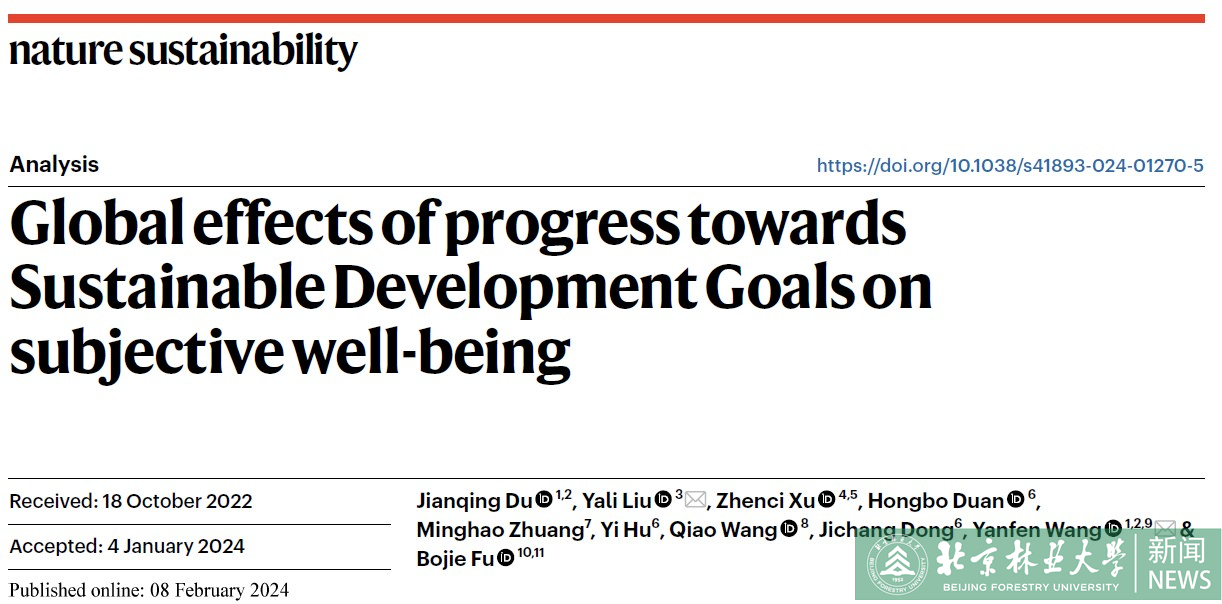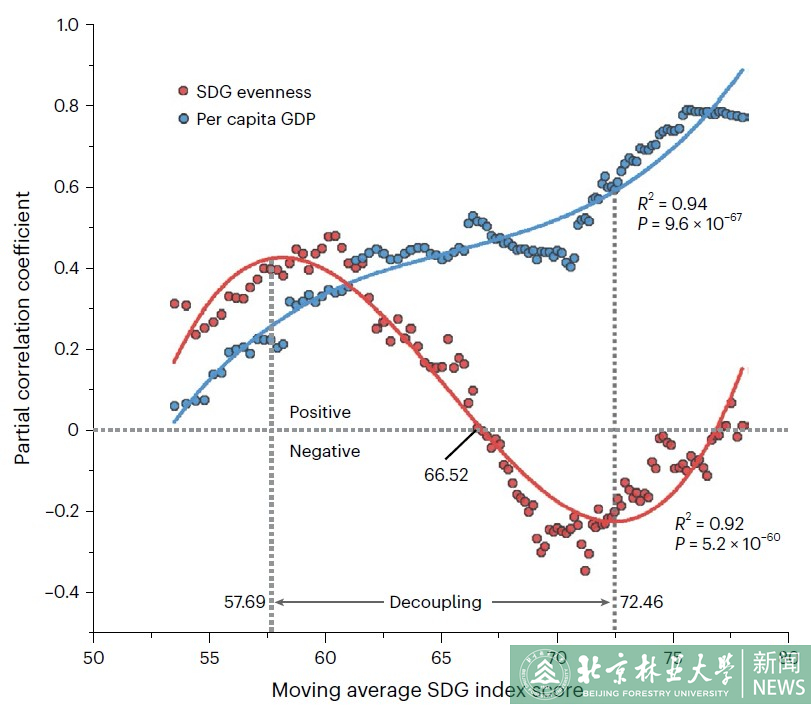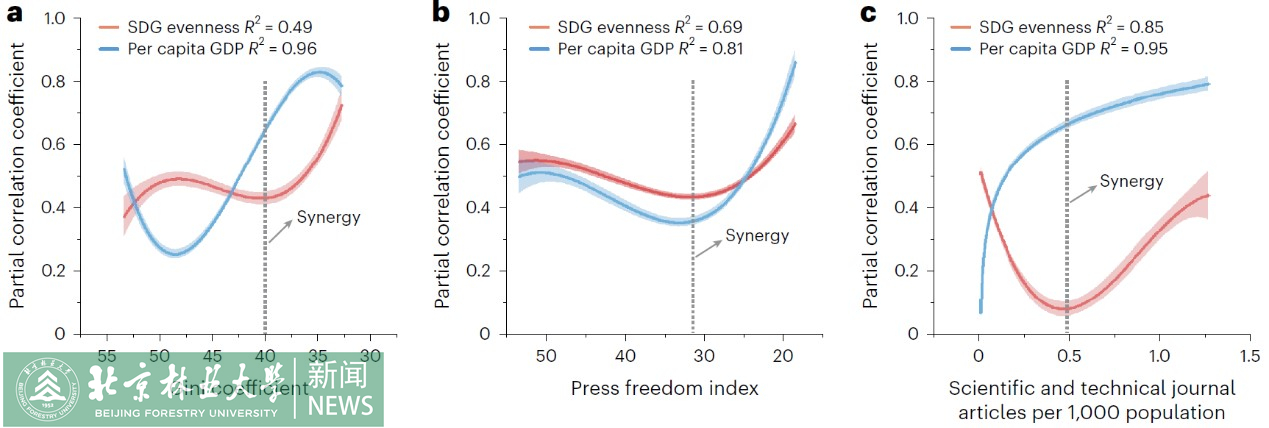Latest news
Recently, Liu Yali, a young scholar from the School of Grassland Science, collaborated with the University of the Chinese Academy of Sciences and other institutions to study the impact of sustainable development progress on global human subjective well-being. Their research findings were published under the title "Global effects of progress towards Sustainable Development Goals on subjective well-being" in the journal Nature Sustainability (Q1, IF = 27.157).

Subjective well-being (SWB) is a well-established metric for people to appraise and evaluate their own lives. The pursuit of SWB has shaped human activities and social development for thousands of years. Previous studies suggested that the economy, social support, health, freedom, generosity and trust in government are all determinants of SWB. Among them, economic factors are dominant, probably owing to their strong collinearity with other factors. For instance, direct cash transfer is a crucial determinant for individuals’ SWB. At the national scale, per capita gross domestic product (GDP) plays a vital role, while government expenditure on unemployment insurance, health insurance and environmental protection also increases SWB. However, economic growth could indirectly affect SWB, for example, through associated issues such as air pollution. In general, SWB strongly focuses on human prosperity while neglecting the welfare of our planet.

As common pursuits of human society, subjective well-being (SWB) strongly depends on economic factors, and the 17 Sustainable Development Goals (SDGs) emphasize promoting equilibrium between socio-economic development and environmental conservation. Therefore, trade-offs between narrowing existing progress differences across SDGs and improving SWB might exist, which could interfere with global policy-making for human development but remain unexplored. In the research, the changing effects of achieving balance across SDGs and other factors on SWB along the global sustainable development gradient were investigated, and results show that achieving balance across goals, rather than their average performance or per capita gross domestic product, is the primary factor supporting well-being in countries with poorly progressed SDGs. However, SWB in countries approaching fulfillment of sustainable development depends more on wealth rather than on achieving balance across SDGs. Given the trade-offs between economic development and poorly achieved goals (for example, SDG 13, Climate Action) in these countries, the strong dependence of well-being on wealth might impede the holistic achievement of the 17 goals. Overall, the study uncovers an essential but long-neglected subjective control factor in the global road map towards SDGs.

Liu Liya is the first author and corresponding author of the paper. This work was supported by the National Natural Science Foundation of China (42001267 (Y.L.), 42041005 (Y.W.) and 42041007 (B.F.)), the International Partnership Program of the Chinese Academy of Sciences (121311KYSB20170004-04 (Y.W.)) and the China Postdoctoral Science Foundation (2021T140655 (Y.L.)).
Paper link: https://www.nature.com/articles/s41893-024-01270-5












